Middle East
Syria hit with nationwide power outage amid grid failures | News
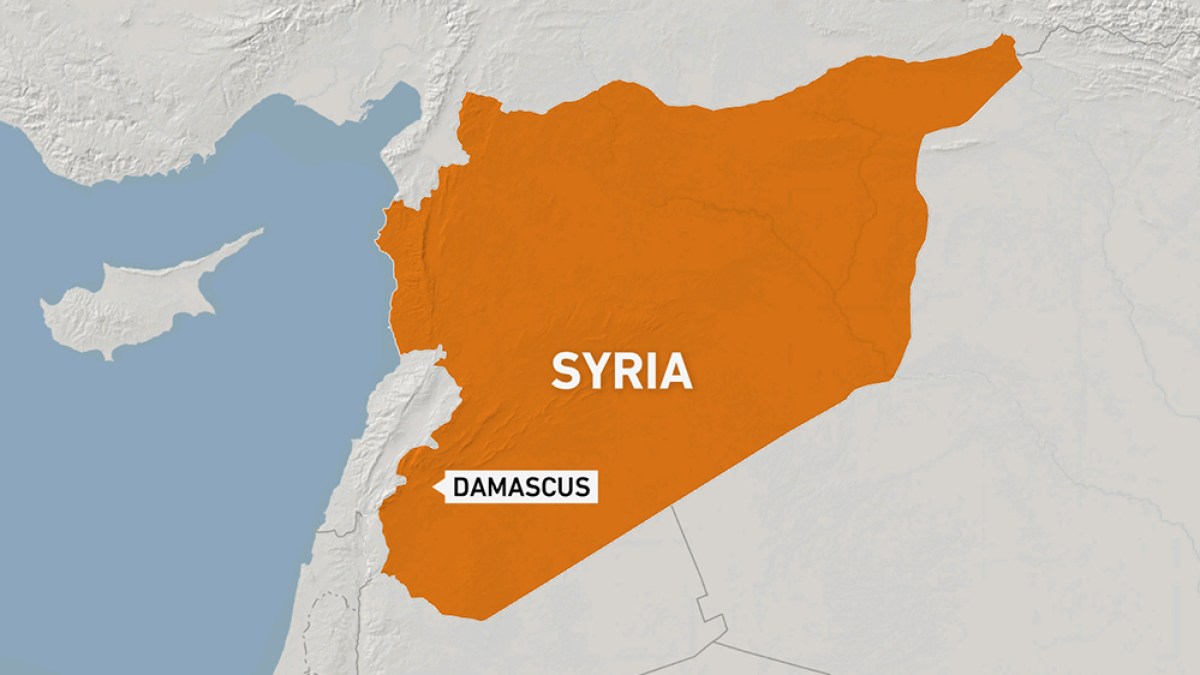
Nationwide blackout strikes Syria due to malfunctions, authorities say, amid deepening economic crisis.
Syria has suffered a nationwide power outage due to malfunctions at several points in the national grid, a spokesperson from the Ministry of Energy has said.
The spokesperson said technical teams were addressing the issues that struck on Tuesday night. There has been no initial indication that an attack was the cause.
The director of the General Establishment for Electricity Transmission and Distribution, engineer Khaled Abu Dai, told the state news agency SANA: “The nationwide power outage in Syria is the result of a technical fault in the electrical system. Efforts are under way to repair the problem and restore power as quickly as possible.”
The power returned to the provinces of Homs, Hama and Tartous and will gradually return to the rest of the governorates, SANA quoted the director general later.
Syria suffers from severe power shortages, with state-supplied electricity available for only two or three hours a day in most areas. Damage to the grid means that generating or supplying more power is only part of the problem.
Damascus used to receive the bulk of its oil for power generation from Iran, but supplies have been cut off since Hayat Tahrir al-Sham (HTS) led the ouster of Tehran-allied former Syrian President Bashar al-Assad in December in a lightning offensive.
The interim government under President Ahmed al-Sharaa has pledged to quickly ramp up the power supply, partly by importing electricity from Jordan and using floating power barges.
Damascus also said it will receive two electricity-generating ships from Turkey and Qatar to boost energy supplies.
Millions of Syrians still cannot afford to install solar panels or pay hefty fees for private generator services.
Syria’s new authorities have been struggling to fix battered infrastructure after a 14-year conflict decimated much of the country. They have struggled to convince Western nations to lift economic sanctions to make Syria’s economy viable again.
The country has also suffered a series of devastating Israeli attacks that caused significant damage to basic infrastructure.
Since al-Assad was ousted, Israel has carried out hundreds of air strikes and deployed troops to a United Nations-patrolled buffer zone on the occupied Golan Heights.
While al-Assad was in power, Israel also routinely attacked Syria, bombing what it claimed were Iranian and Hezbollah targets.
Middle East
Israel launches air attacks on Syria’s Damascus and Hama | News
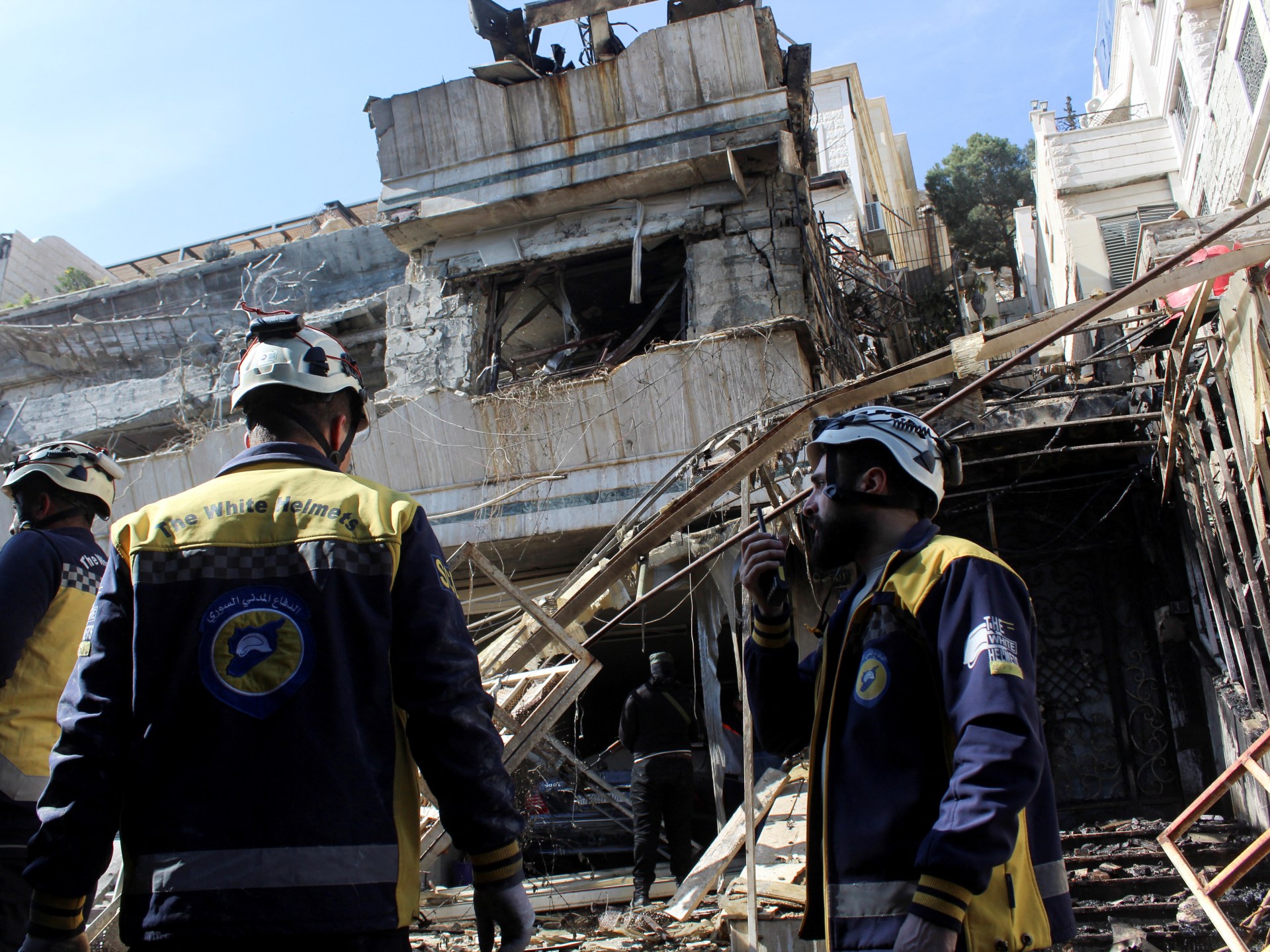
In latest wave of attacks, Israel strikes Damascus’s Barzeh neighbourhood and ‘military capabilities’ in Hama and Homs.
Israeli military aircraft have carried out attacks in Syria’s capital Damascus and in the central province of Hama, Israel’s army and local media have said, in the latest string of strikes on the war-torn country.
The state-run Syrian Arab News Agency (SANA) said the attacks on Wednesday targeted the vicinity of the scientific research centre in the Barzeh neighbourhood of the capital, as well as the airport in the Syrian city of Hama.
The Israeli military in a statement confirmed the attacks, saying it struck what it called “military capabilities” at the Syrian military bases in Hama city and Homs’ T4 military airport, along with alleged military infrastructure sites in Damascus.
Since the overthrow of Syrian President Bashar al-Assad in December, Israel has carried out hundreds of air strikes in Syria and deployed troops to a United Nations-patrolled buffer zone on the occupied Golan Heights.
Even while al-Assad was in power, Israel also routinely attacked Syria, bombing what it claimed were Iranian and Hezbollah targets.
In the days after al-Assad’s removal on December 8, the Syrian Observatory for Human Rights (SOHR) – a United Kingdom-based war monitor – reported Israeli strikes targeting the research centre in Barzeh. Israel has claimed the centre was used to develop guided missiles and chemical weapons.
According to SOHR, Israel’s military carried out more than 500 air attacks on targets in Syria between December 8 and December 31, 2024, and has carried out at least 43 attacks so far this year.
Western countries including the United States had previously attacked the Ministry of Defence facility in 2018, saying it was related to Syria’s “chemical weapons infrastructure”.
Last month, Israel said it struck the T4 military base twice, targeting military capabilities at the site.
Last Thursday, Syrian state media said Israeli strikes targeted the coastal Latakia province, with SOHR saying munitions depots were hit.
European Union foreign policy chief Kaja Kallas said last month during a visit to Jerusalem that Israeli strikes on Syria were “unnecessary” and threatened to worsen the situation.
Syria’s Ministry of Foreign Affairs has accused Israel of waging a campaign against “the stability of the country”.
Middle East
Military clash ‘almost inevitable’ if Iran nuclear talks fail, France says | Politics News
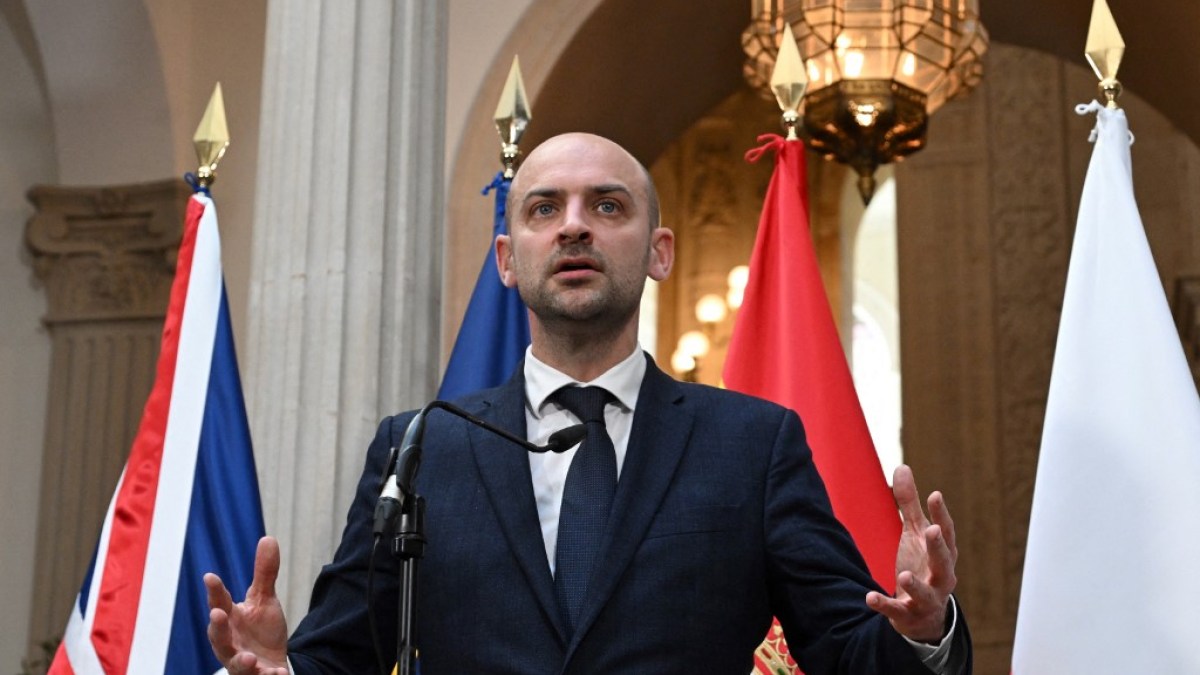
Diplomatic failure on Iran deal could lead to military confrontation, French foreign minister warns.
France’s foreign minister has warned of a potential military confrontation if a new agreement on Iran’s nuclear programme cannot be reached.
Speaking after a high-level meeting on Iran chaired by President Emmanuel Macron on Wednesday, Foreign Minister Jean-Noel Barrot said the “window of opportunity” for diplomacy was narrow with Tehran.
European powers are seeking to create a diplomatic path with a view to reaching an agreement to curb Iran’s uranium enrichment activity by the middle of the year and in advance of an October 2025 deadline, when UN sanctions related to a 2015 accord on Iran’s nuclear programme with world powers expire.
Tehran has consistently denied seeking nuclear weapons, insisting its programme is peaceful.
“The window of opportunity is narrow. We only have a few months until the expiration of this (2015) accord. In the event of failure, a military confrontation would seem to be almost inevitable,” Barrot told parliament.
“Our confidence and our conviction remain intact,” Barrot said. “Iran must never acquire nuclear weapons.” He stressed that France’s priority is securing a “verifiable and durable” agreement to limit Iran’s nuclear activities.
The 2015 Joint Comprehensive Plan of Action (JCPOA), which provided sanctions relief in exchange for nuclear restrictions, collapsed after US President Donald Trump unilaterally withdrew in 2018 and reimposed crippling economic sanctions.
Since then, Iran has far surpassed that deal’s limits on uranium enrichment, producing stocks at a high level of fissile purity, well above what Western powers say is justifiable for a civilian energy programme and close to that required for nuclear warheads.
The European powers have sought to raise pressure on Iran to coax it back into nuclear discussions. They have held several rounds of talks with Iran, including at the technical level, last week, to try to lay the groundwork.
But the Trump administration has focused initially on a campaign of “maximum pressure”.
Trump, who has urged Supreme Leader Ayatollah Ali Khamenei to engage immediately in negotiations, threatened Iran on Sunday with bombing and secondary tariffs if it did not come to an agreement over its nuclear programme.
Khamenei has promised retaliation for any attack.
Foreign Minister Seyyed Abbas Araqchi, in talks with his Dutch counterpart on Wednesday, reaffirmed Tehran’s commitment to peaceful nuclear development under international law, the official Tasnim news agency reported.
Araqchi reiterated that Iran’s nuclear programme complies with international regulations. He said Tehran remains open to genuine negotiations, provided they occur on equal terms and without coercion, threats, or intimidation.
He also condemned recent US statements about Iran, calling them unacceptable and a violation of international principles. Araqchi warned that Iran would respond swiftly and decisively to any attack on its sovereignty, territorial integrity, or national interests.
Middle East
Israel’s Netanyahu heads to Hungary in defiance of ICC arrest warrant | Gaza News
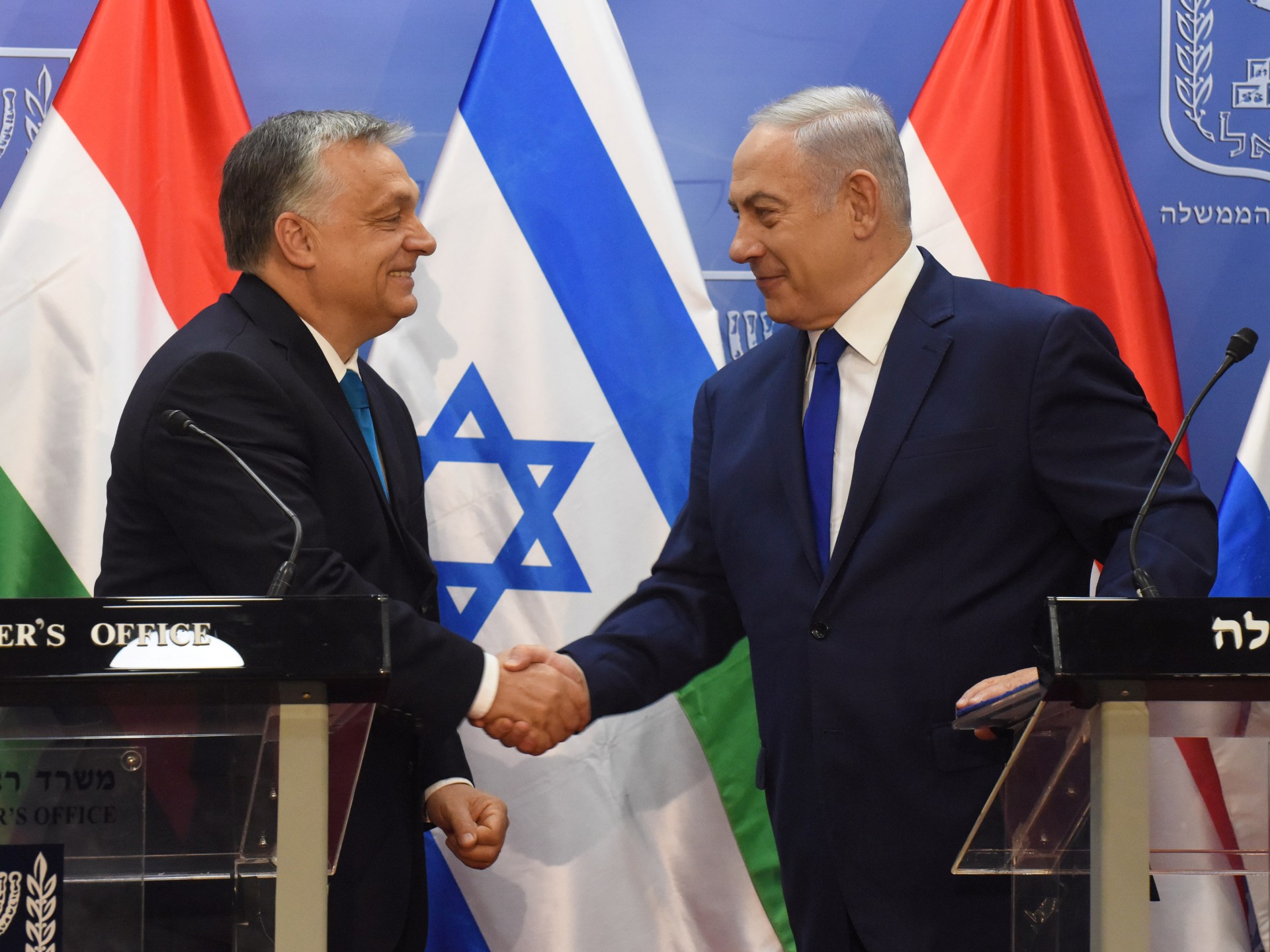
Prime Minister Viktor Orban has made it clear Hungary will not arrest the Israeli prime minister despite an international warrant.
Israeli Prime Minister Benjamin Netanyahu is heading on a four-day visit to Hungary, despite an International Criminal Court (ICC) arrest warrant over allegations of war crimes in Gaza.
Hungary, a founding ICC member, is theoretically obliged to arrest and hand over anyone subject to a warrant from the court. However, Prime Minister Viktor Orban made clear it would not respect the ruling.
Netanyahu is expected to meet Orban in Budapest on Wednesday evening. Details of their planned programme have been limited to a visit to a Holocaust memorial.
The trip will be Netanyahu’s second abroad since the ICC issued warrants to arrest both him and former Defence Minister Yoav Gallant in November last year. The Israeli prime minister visited Washington in February to meet close ally US President Donald Trump. Israel and the United States are not members of the ICC.
The Hague-based court has criticised Hungary’s decision to defy its warrant for Netanyahu. The court’s spokesperson, Fadi El Abdallah, said that it is not for parties to the ICC “to unilaterally determine the soundness of the Court’s legal decisions”.
Participating states have an obligation to enforce its decisions, El Abdallah told The Associated Press news agency in an email, and may consult with the court if they disagree with its rulings.
“Any dispute concerning the judicial functions of the Court shall be settled by the decision of the Court,” El Abdallah said.
Orban has been the EU’s most intransigent spoiler in the bloc’s decision making and is seen as a pioneer of some of the same tactics that Netanyahu has been accused of employing in Israel, including the subjugation of the judiciary and a crackdown on civil society and human rights groups.
Disregard for the rule of law
The European Green Party has called for Netanyahu to be arrested and face the ICC trial.
“The European Union and national governments have a duty to uphold international law and ensure accountability for war crimes and human rights abuses,” said the party co-chair Ciaran Cuffe in a statement.
“By ignoring the International Criminal Court’s arrest warrant for Prime Minister Netanyahu, Viktor Orban is showing the same disregard for the rule of law on the international stage that he has consistently shown in Hungary,” Cuffe added.
The ICC issued arrest warrants after assessing there were “reasonable grounds” to believe that Netanyahu and Gallant “intentionally and knowingly deprived the civilian population in Gaza of objects indispensable to their survival, including food, water, and medicine and medical supplies, as well as fuel and electricity”.
Israel has rejected all the accusations, which it says are politically motivated and fuelled by anti-Semitism.
-

 Lifestyle2 days ago
Lifestyle2 days agoThere’s a new push to put whole milk back in school meals. Here’s what you should know
-

 Education1 day ago
Education1 day agoTrump administration suspends a host of federal grants to Princeton University
-

 Lifestyle2 days ago
Lifestyle2 days ago‘The Friend’: When the star of the movie is a very good boy
-

 Africa2 days ago
Africa2 days agoTrump hints at third term possibility, despite constitutional limits
-

 Sports2 days ago
Sports2 days agoNFL announces changes to kickoffs, overtime, how the ball is spotted and instant replay but owners table ‘tush push’ ban
-

 Middle East2 days ago
Middle East2 days agoLibya: A Voice for Reconciliation | Documentary
-

 Middle East2 days ago
Middle East2 days agoYet another Israeli war crime is buried in the sand as the world looks away | Israel-Palestine conflict
-
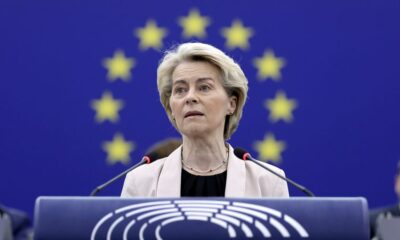
 Europe2 days ago
Europe2 days agoEurope warns Trump: We have ‘a strong plan’ for retaliation against tariffs




